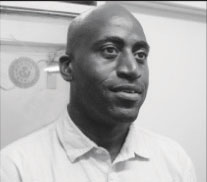
IT is easy to judge whether a computer programme is well designed, simply by observing its behaviour in response to a specific problem. The problem being, how it copes with a time-consuming calculation that will need to be repeated. That is a common issue faced by computer programmers. The solution is to store, or cache, the initial results of costly operations for later re-use.
The cache is checked before attempting an expensive operation. This avoids the need to repeat the high up-front costs of performing the costly operation. When a cache is used, a programme runs faster and more efficiently. The high initial cost is amortised over the lifetime of the programme, and your favourite app runs more quickly.
From a computer’s perspective, the cost might be measured by:
* The delay when downloading a file from a slow website;
* The battery-life or energy needed to generate a result;
* The CPU time required to compute a value.
Based on this insight, the recent announcement by the Ministry of Education in Saint Lucia that it would charge a fee for people wishing to use an existing process for validating documents was understandable.
After the initial cost of validating a document, additional validations of that same certificate should proceed at a much faster pace, simply by capturing the results of the work already done. It would then be possible to validate a document within mere minutes, instead of days, if a cache was properly implemented. Using a cache, the cost would be justified for initial validations, while remaining free for repeat validations.
Since the decision to raise these costs was reconsidered, perhaps a system of cached results will be used to reduce operational costs incurred by the Ministry, to keep down their validation costs, and improve the efficiency of the validation process. A simple check at the right time could lead to significant savings.
—
To share your views, contact the author at: www.datashore.net or via The VOICE.
About the Author
Dr. Lyndell St. Ville is an ICT Consultant, and Chief Technology Officer of Datashore, based in Saint Lucia.
His work includes using systems analysis and design techniques to reduce costs and improve operational efficiencies.





![Simón Bolívar - Liberator of the Americas [Photo credit: Venezuelan Embassy]](https://thevoiceslu.com/wp-content/uploads/2025/12/Simon-Bolivar-feat-2-380x250.jpg)



